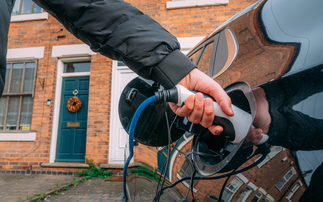From stable policies to constant innovation, the auto sector demonstrates that clean technology can deliver decarbonisation
What have car manufacturers ever done for the green economy? The answer, according to a Sustainability Hub event last week on how the road transport sector had delivered both "green and growth", is a hell of a lot.
Over the past 10 years the auto industry has delivered one of the most compelling green business success stories in history, as average emissions have fallen by a quarter, ambitious green regulations have been complied with ahead of schedule, and next-generation zero-emission vehicles have hit the roads.
The UK's car market has been transformed, from a position where just 0.9 per cent of new cars had an emissions footprint of less than 130g/km in 2000 to a performance last year which saw more than 63 per cent of cars come in below the 130g/km mark. Emissions have been slashed, billions of pounds in fuel costs have been saved, and the emergence of attractive green cars has played a key role in the industry enjoying record sales success.
Meanwhile, auto giants such as Nissan, Ford, BMW and Jaguar Land Rover, to name but a few, are investing billions in developing the kind of electric, hydrogen or biofuel vehicles that can cut emissions to almost zero, while also investigating how they can one day adapt their business models to a world where "peak car" may have been reached in industrialised markets.
The industry may still face many environmental challenges - how does it start to cut emissions as demand soars in emerging markets, how does it tackle the air pollution crisis - but its investment in clean technology and its consistent ability to cut new car emissions holds numerous lessons for the wider green economy as all industries wrestle with the decarbonisation challenge.
But what precisely can the wider green economy learn from the success of the auto industry? How can energy companies emulate car manufacturers and deliver steady reductions in emissions? Why are the policy successes enjoyed in the transport industry not being replicated in other spheres? These were the questions a panel of leading experts set out to address at last week's events, coming up with 10 key lessons for the green economy.
1 You need a road to Damascus moment
Kicking off the discussion, Joe Greenwell, chief executive of the Automotive Investment Organisation and a former boss at Jaguar Land Rover (JLR), which sponsored the event, recalled the meeting about 15 years ago when the company realised decarbonisation would prove critical to the industry's long-term future. "I well remember a meeting with my last company when we recognised that this had moved from a regulatory issue to a competitiveness issue," he said. "In other words if you wanted to stay in business, you needed to invest in low-CO2 technology, and frankly that is what everyone has done."
Virtually every major car manufacturer can now credibly argue that their board-level execs are serious about decarbonisation and have invested billions of dollars in clean tech development as a result. The question remains as to whether or not their counterparts in the energy or mining industries have reached the same conclusion.
However, as Greenpeace's executive director John Sauven observed, there are signs that some leading energy companies are starting to realise decarbonisation is non-negotiable. "The Telegraph [last week] in their business section said the ‘end may be in sight for fossil fuels as science makes solar panels cheap'," he said. "And you also see the CEO of RWE, which... is a big, dirty, centralised power company, saying in an interview last week: "My dream, my vision is that RWE will put solar panels on your roof, a battery in your shed, a heat pump in your cellar, and we will also manage this complex energy system for you. We want to be the holistic energy manager of the future".
Perhaps the auto industry is not alone in accepting carbon-intensive business as usual is no longer an option.
2. Public pressure can help you get there
Sauven opened his speech by recalling how he had a little "previous" with Jaguar Land Rover. "I was actually involved in shutting down one of their plants in Solihull in 2005," he admitted. "I spent a very uncomfortable day D-locked to their plant."
As Greenwell observed, it was a pretty "uncomfortable" day for him too as the media flocked to cover the Greenpeace's protest against the Range Rover Sport and its inability to do more than 12 miles to the gallon in an urban environment.
Sauven said that since the protest he had visited JLR several times - "visiting by the front door" - to see the company's new hybrid vehicles and all-electric concept Range Rover. It is a pattern that has been seen time and again, as a combination of regulatory pressure, evolving consumer demand, and public protests has jolted firms into accelerating the development of clean technologies and greener business models.
3. You need an "innovation system"
Greenwell said one of the biggest drivers of the auto industry's success at cutting emissions has come from the creation of the Automotive Council and its ability to bring together manufacturers, officials, suppliers, and other groups to help drive the transition. Andy Eastlake, managing director of the Low Carbon Vehicle Partnership, similarly highlighted how co-operation between government and industry has created an environment that aids investment in innovation and enables the kind of collaboration between researchers and businesses at which the UK has traditionally been pretty poor.
Professor Paul Ekins, director of the UCL Institute of Sustainable Resources, hailed these kinds of groups as evidence of an "innovation system" that serves to accelerate the development of clean technologies. "We have been through a bit of a revolution in this country, which is wholly to be welcomed in my view," he argued. "It is very rare in industrial societies that innovation emerges as manna from heaven, as a result of disconnected research and development in universities of industry. Rather, you need to think in terms of an innovation system involving a partnership between industry, finance, the science base, the government and sometimes pushed by campaigning groups from civil society."
Academics have been making this case for years, but Ekins reckoned that it has finally started to get through to policy makers, at least as far as the auto industry is concerned. "Only government has the convening power to put these partnerships together," he said. "The government gets this in the automotive sector, and thankfully we hear less and less of the tired pronouncements about how governments should ‘get out of innovation because any efforts on its part to pick winners will end up by picking losers'. That is not to say governments should try to pick winners - markets pick winners. But governments have a crucial role in stimulating, shaping, and regulating markets to ensure that they work properly and they prepare businesses for future conditions."
This innovation system needs to be backed by serious R&D muscle and Stephen Crisp, director of global government affairs at Jaguar Land Rover, made the point that with a £2.75bn-a-year product development and research budget, the company can make a credible claim for being the "UK's largest green technology investor".
4. And you need to get the balance right between incremental improvement and "silver bullets"
There is no magic wand for delivering decarbonisation and efforts to cut emissions need to focus on incremental improvements, as well as the game-changing innovations that can deliver zero-carbon or near-zero-carbon infrastructure.
Stephen Crisp, director of global government affairs at Jaguar Land Rover, warned that there was a constant need to try to get the balance right between these two research imperatives. "Among some media and politicians there is a sort of obsession with electric vehicles, and it is a global obsession," he said. "I can see why, because EVs appear very futuristic and game-changing. We are taking this very seriously, we have 340 hybrid engineers, which means we have the most in the UK auto industry, this is not something we are saying isn't going to work. But I want to make the point that the real CO2 gains aren't made with silver bullets, they are made with small, constant, incremental changes."
These incremental changes occur in three areas: weight reduction, tackling parasitic loss from factors such as tyre-roll and aerodynamics, and making drive trains more efficient. They might not be particularly exciting, but like energy-efficient light bulbs or condensing boilers, they should not be ignored in the rush to develop zero-emission technologies.
5. Clear and achievable targets can make a big difference
All the panelists were in agreement that one of the main factors behind the auto industry's emissions-reduction efforts were clear and concise targets for 2015 and 2020, which had been set with enough warning to influence new vehicles' lengthy design cycles.
Green groups may have in the past criticised the auto industry for trying to water down these targets, but once they have been set the sector's designers and engineers have proven adept at meeting them. Greenpeace's Sauven recalled how VW Group had moved from complaining that EU targets requiring average emissions of below 95g/km by 2020 were unrealistic and based on a "political decision" to declaring that it would meet all the new EU targets.
Crisp also praised the targets for taking a broadly technology-neutral, goal-oriented approach that allowed manufacturers to innovate and being mindful of the long development cycles and different product portfolios that auto makers face.









